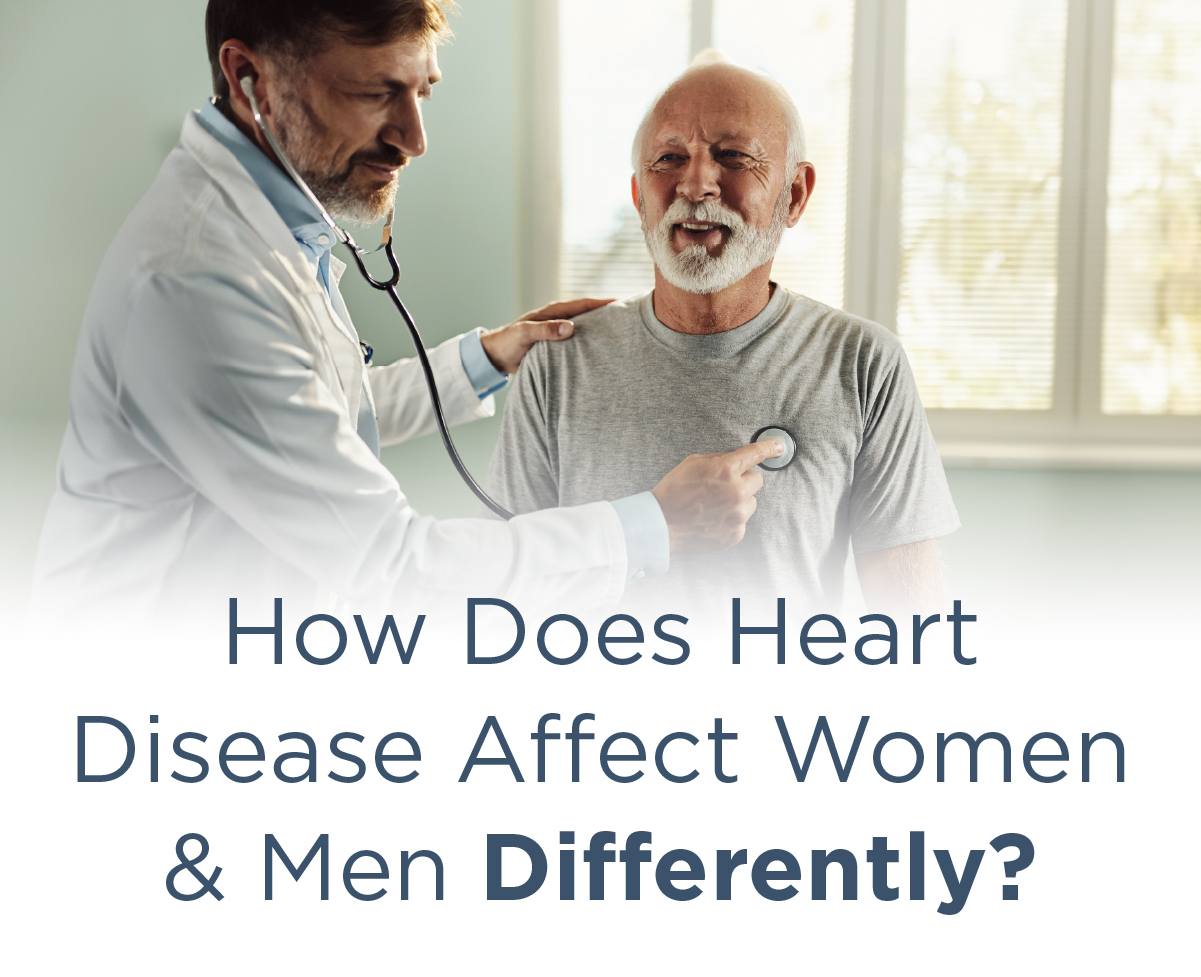
February 16, 2024
Ladies, Listen to Your Heart
A 2019 survey from the American Heart Association found that only 44% of women correctly identified heart disease as a leading threat to their health. Why such a low number?
We often base our understanding of heart disease on male experiences due to the historical underrepresentation of women in clinical trials. It’s important to understand that heart disease presents itself differently in women and men.

Chest pain, or angina, is the most common symptom of heart disease in both men and women. However, it’s extremely common for women to show more subtle symptoms compared to classic chest pain, including:
- Jaw, neck or upper back pain
- Nausea or vomiting
- Shortness of breath
- Sweating
- Fainting
- Indigestion
- Extreme fatigue
These symptoms in female patients may be mistaken for anxiety or gastrointestinal problems. Women’s symptoms may not fit into a “typical” definition of what heart disease looks like and are misunderstood more often than men’s.
Women are also more likely to experience these three less common kinds of heart attacks:
- Myocardial infarction with nonobstructive arteries (MINOCA): heart attack with a coronary spasm rather than coronary arteries significantly narrowing
- Spontaneous coronary artery dissection (SCAD): results from a tear in the inner wall of an artery, creating a flap or swelling
- Stress cardiomyopathy (broken heart syndrome): a more subtle heart attack with a lack of blocked arteries like in coronary artery disease, typically resulting from severe physical or emotional stress
Men typically show signs of:
- Squeezing chest pressure or pain
- Jaw, neck or back pain
- Nausea or vomiting
- Shortness of breath
Why Do Women and Men Show Different Symptoms of Heart Disease?
In addition to women having smaller hearts and more narrow blood vessels than men, women and men experience cholesterol buildup in different parts of the body. Men typically develop plaque buildup in the largest arteries that supply blood to the heart. In contrast, women are more likely to have buildup in the heart’s smallest blood vessels, known as the microvasculature.
Coryell Health Cardiology Can Help
If you think you may be at risk for heart disease, talk to your primary care physician, and they can refer you to a Coryell Health cardiology specialist. Our cardiology team diagnoses heart problems and performs procedures to decrease your risk with the latest medical technology and a personalized touch.
We understand that each patient is unique and may develop heart disease from various factors. We help manage heart disease risk factors like high cholesterol and high blood pressure through expert nutritional advice and listening to your specific needs.
Don’t hesitate — speaking up and going to the doctor could save your life. To make an appointment, call Coryell Health at (254) 865-2166.
 Skip to content
Skip to content
